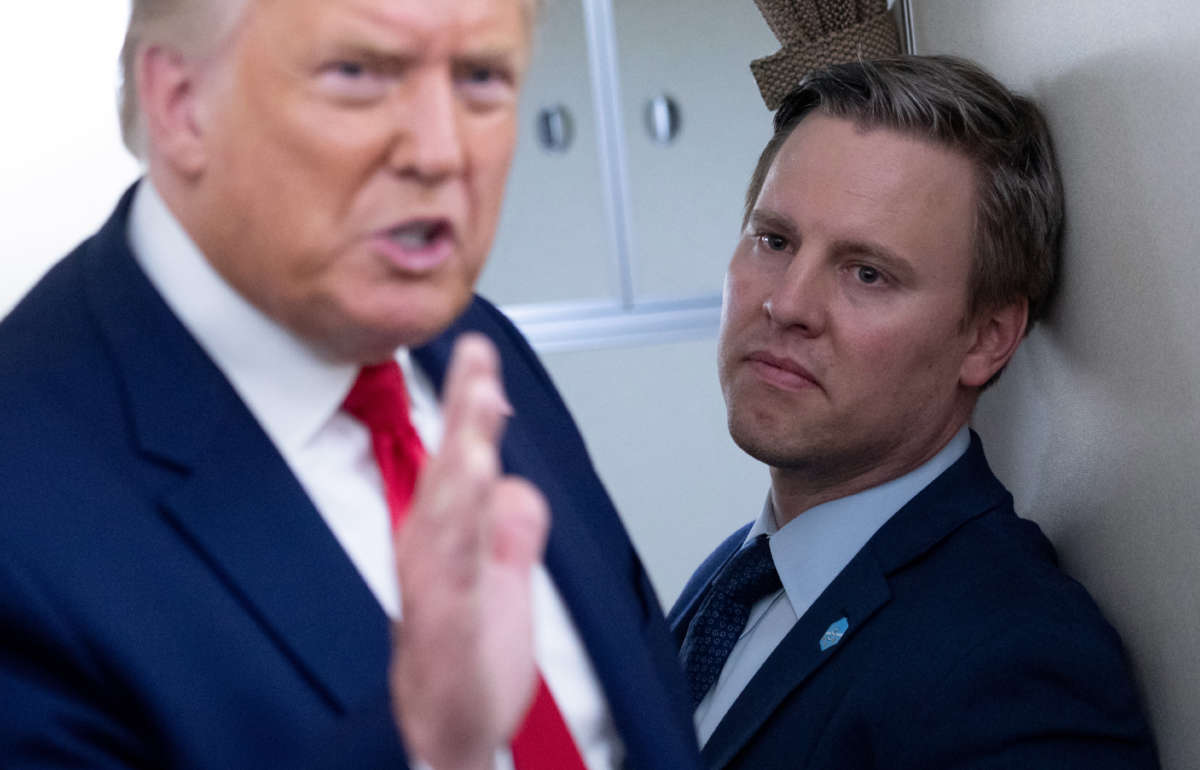A key witness for the House select committee investigating the January 6 attack on the U.S. Capitol building was unable to attend a public hearing on Monday due to a family emergency.
Bill Stepien, the campaign manager to former President Donald Trump during the final weeks of his campaign, was scheduled to appear before the committee to discuss, among other items, Trump’s thinking after it was announced that he had lost Arizona to now-President Joe Biden on election night. But Stepien informed the committee that he couldn’t be in attendance for his public deposition after his wife reportedly went into labor early Monday morning.
According to The New York Times, the committee accommodated Stepien’s request by delaying the timing of the hearing by a few minutes, and by showing recorded testimony that Stepien had already provided to investigators. The committee also said it would allow Stepien’s lawyer to read a statement on his behalf.
Stepien’s testimony is important because it highlights how Trump’s campaign advisers repeatedly warned the former president not to push lies about election fraud to explain his loss, particularly on the night of the election. In her opening statement, committee vice chair Rep. Liz Cheney (R-Wyoming) noted that Trump’s campaign team “knew there was no legitimate argument — fraud or irregularities or anything — to overturn the election.”
“And yet President Trump went ahead with his plans for January 6 anyway,” she said.
Stepien’s recorded testimony backed Cheney’s assertions. He and several advisers had told Trump that there was no basis for him to suggest that fraud had affected the outcome of the election, and that it was inappropriate for him to declare victory.
“My recommendation was to say that votes were still being counted” and that it was “too early to call the race” — not to outright say he won, Stepien said.
Trump disagreed, telling Stepien that “he was going to go in a different direction,” Stepien said. This statement was then juxtaposed with Trump’s comments on election night that his loss was the result of “a fraud on the American public.”
Stepien in his deposition said Trump disagreed with his election night advice that he not declare victory. Trump then gave a speech where he said "this is a fraud on the American public … frankly we did win this election" pic.twitter.com/s7eplwoOO1
— Aaron Rupar (@atrupar) June 13, 2022
Other witnesses on Monday suggested that Trump’s former lawyer Rudy Giuliani had advised Trump to declare victory on the night of the election, noting that Giuliani appeared to be intoxicated at the time. After Fox News reported that Biden had won Arizona, Giuliani went to the White House and demanded to speak with Trump.
“President Trump rejected the advice of his campaign experts on election night, and instead followed the course recommended by an apparently inebriated Rudy Giuliani to just claim he won,” Cheney said on Monday, citing testimonies from Stepien and former Trump campaign aide Jason Miller.
Weeks after he was declared the loser, Trump continued to peddle lies about election fraud even though his “own campaign advisors, his Department of Justice, and his cybersecurity experts all told him the same thing” — that election fraud conspiracy theories, including one involving Dominion Voting Systems machines, were “complete nonsense,” the January 6 committee tweeted, citing the words of former Attorney General William Barr.
Join us in defending the truth before it’s too late
The future of independent journalism is uncertain, and the consequences of losing it are too grave to ignore. To ensure Truthout remains safe, strong, and free, we need to raise $46,000 in the next 7 days. Every dollar raised goes directly toward the costs of producing news you can trust.
Please give what you can — because by supporting us with a tax-deductible donation, you’re not just preserving a source of news, you’re helping to safeguard what’s left of our democracy.
